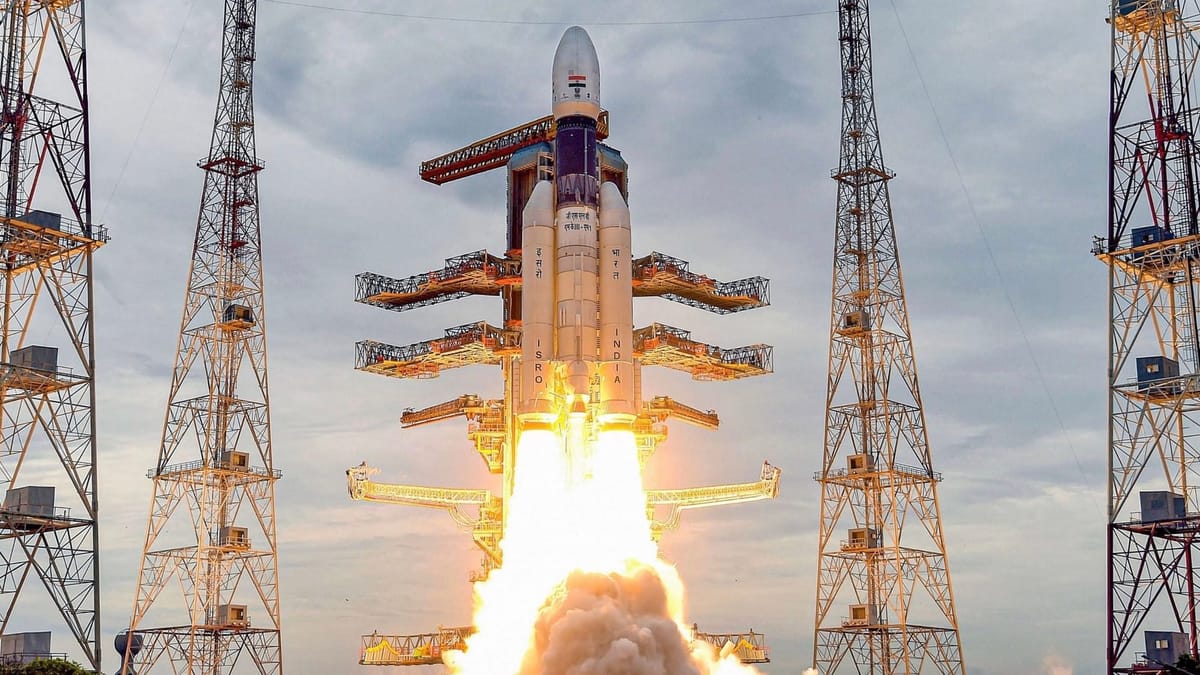
In a move to strengthen its private sector space industries, India has overhauled its once highly restrictive Foreign Direct Investment (FDI) policy. In March 2024, the Ministry of Commerce & Industry announced changes to encourage private and foreign investment in space-related activities. The new policy allows up to 100% FDI in satellite manufacturing and operations, satellite data products, and ground and user segments, with automatic approval for up to 74% investment. For launch vehicles, associated systems, and spaceport creation, 100% FDI is permitted, with automatic approval up to 49%. Notably, the manufacturing of components and subsystems for satellites and ground equipment now enjoys 100% automatic FDI approval.
Adding to the FDI boost, in the latest Union Budget, India's Department of Space received an 18% increase in funding compared to the previous fiscal year, signalling the Indian government's growing commitment to space exploration and technology. Notably, the budget introduces a ₹1,000 crore (around $120 million) venture capital fund earmarked for space start-ups, underscoring India's goal to expand its space economy within the next decade. Marking the first National Space Day on August 23, 2024, Dr. Jitendra Singh, Union Minister for Science and Technology, announced that India aims to land an astronaut on the Moon by 2040. He highlighted the rapid growth of space startups, now nearly 300, following the sector's opening to private players. He also echoed the Finance Minister Nirmala Sitharaman’s forecast that India’s space economy will expand from $8 billion to $44 billion in the next decade.
Additionally, an overview of space policy started in 2023 marks a shift from the country's traditionally government-centric approach to space exploration. The policy aims to foster a vibrant commercial space sector whilst maintaining India's commitment to scientific advancement and national security. At its core, the policy encourages greater participation from non-governmental entities (NGEs) across the entire space value chain, from research and development to the creation of space assets and the provision of space-based services. The policy outlines a wide range of activities that NGEs can undertake, including satellite communications, remote sensing, space transportation, and even asteroid mining.
India's Space Industry
India's space industry is overseen by several important organisations, each with specific roles and responsibilities. The Indian National Space Promotion and Authorisation Centre (IN-SPACe) acts as an autonomous body to promote and regulate space activities. It handles authorisations for a range of activities, including the operation of space objects, launch vehicles, and earth observation stations, while also supporting industry clusters and collaborations. The Indian Space Research Organisation (ISRO) focuses on research and development, ensuring access to satellite data, and fostering international partnerships. NewSpace India Limited (NSIL) is tasked with commercialising space technologies and services. The Department of Space (DOS) coordinates the overall implementation of the Indian Space Policy-2023, ensuring seamless operation and international cooperation in space activities.
The Indian Space Association (ISpA), a non-profit industry body dedicated to fostering the growth of India's private space sector launched In 2021. Serving as the unified voice of the industry, ISpA aims to bridge the gap between government and private entities, focusing on policy advocacy, stakeholder engagement, and knowledge exchange. The organisation’s objective is to accelerate India's self-reliance and technological advancement in the global space arena. ISpA's membership comprises leading domestic and international corporations with advanced space and satellite capabilities, including founding members such as Larson & Toubro, Nelco (Tata Group), OneWeb, and Bharti Airtel, Mapmyindia, Walchandnagar Industries and Ananth Technology Limited, alongside core members like Godrej, Hughes India, Azista-BST Aerospace Private Limited, BEL, Centum Electronics, Maxar India.
India's space sector is characterised by a well-structured ecosystem of governmental and private organisations working in tandem to advance the country's space capabilities. The establishment of regulatory bodies like IN-SPACe, operational entities like ISRO and NSIL, and industry associations such as ISpA demonstrates India's commitment to fostering a strong and diverse space industry. This approach of combining government oversight with private sector innovation, positions India to become a significant player in the global space market while promoting self-reliance and technological advancement in space exploration and utilisation.
Indian Space Startups
India's space startup ecosystem is rapidly growing, driven by innovative companies that are pushing the boundaries of space technology and exploration. These startups are playing a crucial role in transforming India's space sector from a government-dominated arena to a thriving commercial space economy.
One such trailblazer is Skyroot Aerospace, founded in 2018 by Pawan Chandana and Bharath Daka. Based in Hyderabad, Skyroot made headlines in 2021 by becoming the first private Indian company to sign an MoU with ISRO, gaining access to its facilities and expertise. In 2022, Skyroot launched Vikram-S, the nation's first privately developed rocket, marking a historic achievement for India's private space sector.
Bellatrix Aerospace, a Bengaluru-based startup, was established in 2015 by Rohan M Ganapathy and Yashas Karanam. Focused on advanced propulsion technologies, Bellatrix has made significant strides with its Rudra and Arka propulsion systems, which were successfully launched aboard ISRO's PSLV C-58 mission in January 2024. The company had earlier developed India's first privately built Hall Effect Thruster (Arka) in 2021 and unveiled the country's first High Performance Green Propulsion system (Rudra) in 2022, cementing its position as a leader in space mobility.
Founded in 2012 by Sanjay Nekkanti, Dhruva Space is based in Hyderabad, India, and Graz, Austria. The company operates across space, launch, and ground segments, providing services to both civilian and defence clients globally. In 2020, Dhruva was recognised with the National Startup Award for its contribution to satellite and space technology. In 2024, it secured authorisation from IN-SPACe to offer Ground Stations as a Service (GSaaS), further expanding its reach in the space sector.
Another key player is AgniKul Cosmos, established in 2017 at IIT Madras. AgniKul is known for creating India's first private launchpad and mission control room in 2022. The company, founded by Srinath Ravichandran, Moin SPM, Janardhana Raju, and Satyanaryan Chakravarthy, is focused on developing cutting-edge launch vehicles, pushing the envelope of space exploration capabilities.
Digantara, a Bangalore-based startup, is leading the charge in Space Situational Awareness (SSA). Founded by Anirudh Sharma, Rahul Rawat, and Tanveer Ahmed, the company is developing an SSA observatory in Uttarakhand, which will track satellites and space debris in both Lower Earth Orbit (LEO) and Geosynchronous Earth Orbit (GEO). In February 2024, Digantara raised $12 million in a Series A round, with investments from Aditya Birla Ventures and SIDBI, marking a significant milestone for India's space technology sector.
Pixxel, founded by Awais Ahmed and Kshitij Khandelwal, is pioneering high-resolution hyperspectral imaging satellites for Earth observation. The startup, the first Indian company to secure a NASA contract, is developing a constellation of satellites and the Aurora platform to transform satellite imagery into actionable insights. Pixxel's innovative approach has earned recognition, including a spot on TIME's 100 Best Inventions in Sustainability for 2023 and the World Economic Forum's Technology Pioneer status in 2024.
Lastly, Satellize (formerly Exseed Space), founded by Ashhar Farhan and Mahesh Murthy in 2018, has become India's first private company to launch satellites into space. With two satellites currently orbiting Earth, Satellize stands out as one of the few companies worldwide to have launched successfully with both SpaceX and ISRO, showcasing its space-qualification on these platforms.
These startups, through their pioneering technologies and successful partnerships, are shaping India's space future, contributing to the country's ambition to become a global space technology leader.
What’s Next for India’s Space Industry?
Some of the major drivers of India’s space sector include satellite-based communication, navigation, and earth observation services, all in increasing demand globally. According to Jaya Tare, CEO of Newrizon Space, sectors such as space tourism, on-orbit servicing, and asteroid mining are emerging areas where India could make a significant impact. On-orbit services, like satellite refuelling and debris removal, present opportunities, as does the potential for cost-effective space tourism solutions as the technology matures.
Private-sector involvement and international collaborations are important to India’s success in the space sector. New technologies, such as reusable rockets and advanced satellite systems, will accelerate innovation. Dr. Chaitanya Giri of the Observer Research Foundation (ORF) points out that with the advent of 6G, satellite communication will replace traditional telecom towers, merging telecom and space sector revenues. The government is also fostering a new generation of space consumers, such as state governments and public sector undertakings to raise demand.
However, space startups face significant challenges, particularly in funding and infrastructure. While organisations like IN-SPACe are providing critical support, startups need to develop a clearer understanding of the global business landscape, according to Dr. Giri. Additionally, as these startups seek international contracts, there is a risk they might shift focus to markets outside India, undermining the growth of the domestic space ecosystem. To sustain momentum, India must establish stronger legal frameworks, such as the long-awaited Space Activities Bill. Dr. Giri stresses the importance of this legislation for commercial entities participating in space activities, ensuring legal protection and strengthening confidence in the sector.
India’s biggest advantages in the global space race lie in its cost-effective missions, massive talent pool, and willingness to collaborate internationally. By leveraging these strengths and investing in niche areas like small satellite launch services, India is well-positioned to become a global leader in space technology.

